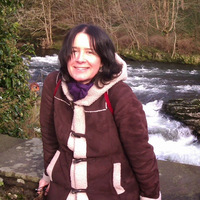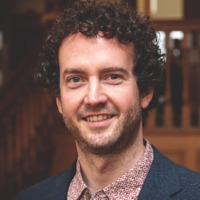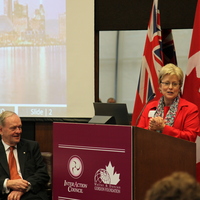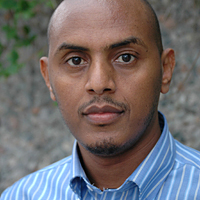Papers by Sarah Blackford
After years of research and with com-pletion in sight, the final year of the PhD often represents... more After years of research and with com-pletion in sight, the final year of the PhD often represents the most challenging time of a student’s career, in which the ultimate
nextsteps: options after a bioscience degree Next steps- (Final).indd 3 25/08/2011 11:44 This boo... more nextsteps: options after a bioscience degree Next steps- (Final).indd 3 25/08/2011 11:44 This booklet was produced by the following learned societies:
FEMS Microbiology Letters
Networking is an important activity that features in many career success stories; vital for acces... more Networking is an important activity that features in many career success stories; vital for accessing communities, it is a recognised competency in the job-search process, helping bioscience PhD students and postdoctoral researchers to gain an advantage in an intensely competitive job market.

BioEssays
g s Many PhD students have aspirations of pursuing an academic career [1] and so need to apply fo... more g s Many PhD students have aspirations of pursuing an academic career [1] and so need to apply for postdoctoral training as their first career step. The ‘ideal’ postdoc should be carried out abroad, with the aim of publishing firstauthor papers in high-impact journals, developing a research niche to foster future grant applications, whilst cultivating a solid collaborative network (Science career blog: Choosing your postdoc position, http://www. science mag.org/careers/2015/06/cho osing-your-postdoc-position). But becoming a group leader requires enormous sacrifices on many levels, including a commitment to do the science sometimes at the expense of a favorable work-life balance, a willingness to relocate, the ability to publish and secure funding, as well as coping with competition and rejection [2]. For these reasons, it is crucial that PhD students enter this process with welldeveloped self-awareness and a full understanding of the uniquely rigorous requirements of an academic career. Equally important, they should know how to identify a future laboratory to suit their needs and to make successful applications for postdoctoral fellowships. Twenty-five PhD students, enrolled under the umbrella of the Life Science Graduate School of ETH/University of Zurich, attended a workshop on the 1st and 2nd February 2017 at the University of Zurich, to gain insights into transitioning on to do a postdoc. The workshop was delivered by two trainers with a combined expertise in funding

In the last decade, life-science research has become increasingly data-intensive and computationa... more In the last decade, life-science research has become increasingly data-intensive and computational. Nevertheless, basic bioinformatics and data stewardship are still only rarely taught in life-science degree programmes, creating a widening skills gap that spans educational levels and career roles. To better understand this situation, we ran surveys to determine how the skills dearth is affecting the need for bioinformatics training worldwide. Perhaps unsurprisingly, we found that respondents wanted more short courses to help boost their expertise and confidence in data analysis and interpretation. However, it was evident that most respondents appreciated their need for training only after designing their experiments and collecting their data. This is clearly rather late in the research workflow, and suboptimal from a training perspective, as skills acquired to address a specific need at a particular time are seldom retained, engendering a cycle of low confidence in trainees. To ensu...
Career Planning for Research Bioscientists is an essential careers guide for bioscience doctoral ... more Career Planning for Research Bioscientists is an essential careers guide for bioscience doctoral students and postdoctoral researchers. It contains a wealth of information and resources specifically targeted at research bioscientists, with practical strategies to enhance career success in an increasingly competitive job market. Advice on how to write a winning CV together with examples adapted for different jobs is presented, as well as practical exercises to assist with skills analysis and decision making. Profiles of PhD-qualified bioscienstists in a range of professions including academic research, industry, science communication, management and consultancy provide valuable insights into how others have managed their careers, and tactics such as networking and using social media demonstrate how new opportunities can be discovered.











Uploads
Papers by Sarah Blackford